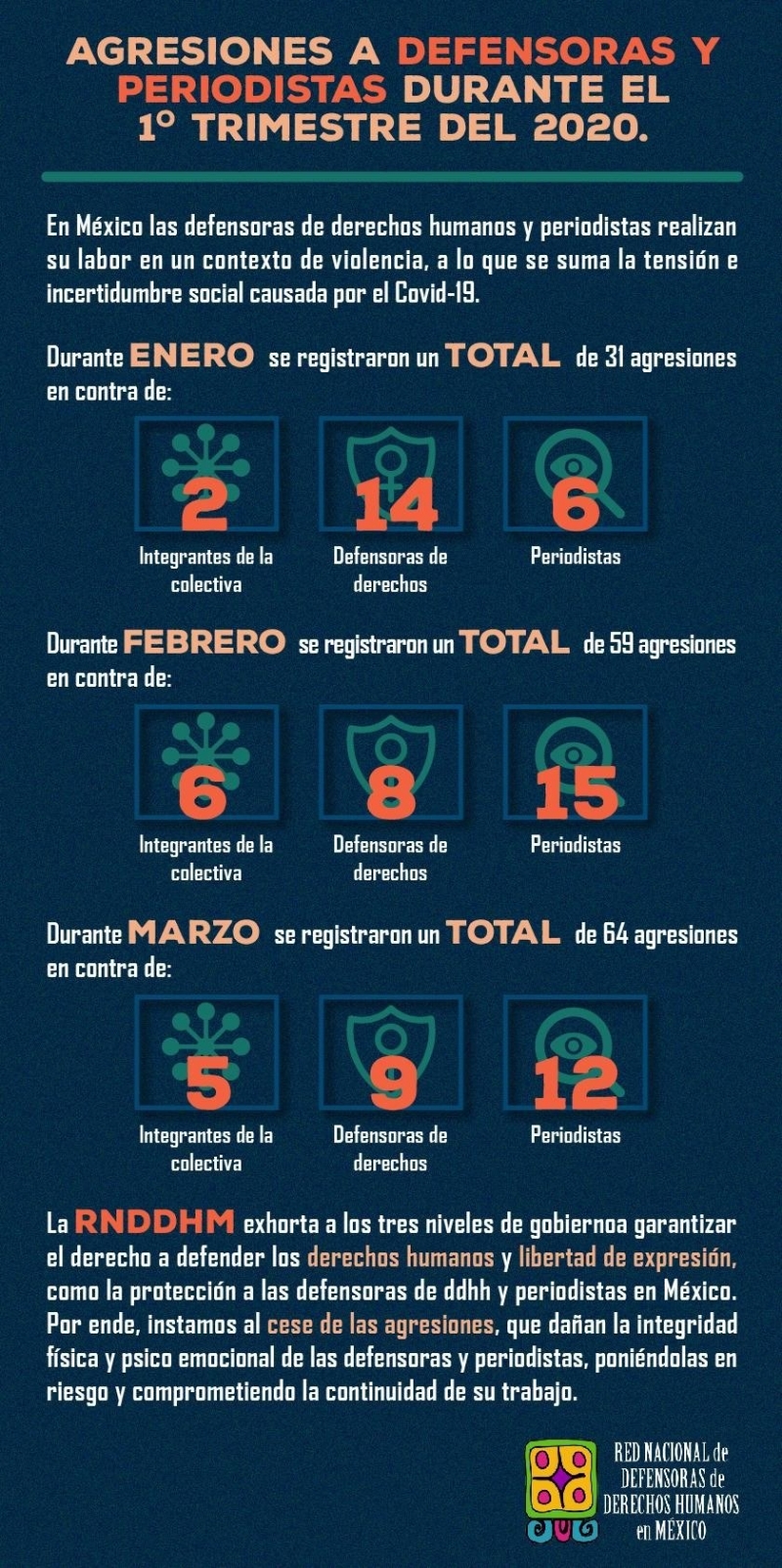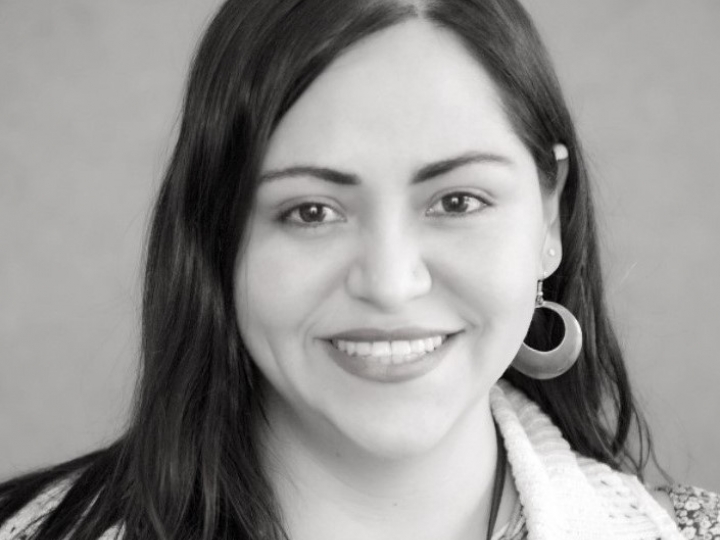The organizations and networks pointed out that, to date, there has been no adequate response from the authorities in charge of guaranteeing the protection of individuals, communities and organizations that defend human rights and the journalistic practice.
For this reason, they called on the authorities to coordinate amongst them, develop a strategy at the national level and urged the federal and local governments to adopt the necessary measures to protect the lives of human rights defenders and journalists, in the context of the health emergency, in accordance with the recommendations of international and civil society organizations.
Attacks against HRD have increased since March
The Space of Civil Society Organizations for the Protection of HRD and Journalists (Espacio OSC), which monitors the Mechanism for the Protection of Human Rights Defenders and Journalists - an official mechanism created in 2012 due to the increase of aggressions and risks - stated that since March 15th, the official data of this Mechanism have identified at least 44 attacks against HRD and journalists, as well as the murder of two journalists and four HRD.
The Espacio OSC mentioned that in 2019 a total of 295 attacks were registered (on average 24.5 attacks per month) which implies that in the context of the health crisis the attacks have doubled.
Moreover, the National Human Rights Network “All Rights for All” (Red TDT, Red Nacional de Organismos Civiles de Derechos Humanos “Todos los Derechos para Todas y Todos”), which is comprised by 86 organizations in 23 states of Mexico, denounced that out of the four defenders that were killed in April and until May 14th during the COVID-19 sanitary contingency, three of them were land, territory and environmental defenders, and two of the murders occurred in their own home. This clearly shows the increase in vulnerability during the health crisis.
The four murdered defenders were: Isaac Medardo Herrera, defender of a natural reserve and representative of 13 communities in defense of a water spring in Morelos; Benito Peralta Arias, community leader of San Jerónimo Amanalco, in Texcoco, State of Mexico; Adán Vez Lira, a renowned environmentalist that along with his community opposed to mining projects in Actopan, Veracruz; and Juan Zamarrón, an activist in defense of forests in the Sierra Tarahumara, Chihuahua, who had constantly denounced clandestine logging in his region. Along with him, two members of his family were killed.

The Red TDT pointed out that land, territory and environmental defenders continue to face the greatest number of attacks, and their risk increased even more in times of contingency, due to the fact that the institutional absences open multiple windows of opportunity to commit crimes and human rights violations, making the defense of life and human rights more complex. According to Front Line Defenders, 24 HRD were assassinated in Mexico in 2019, 70% of which were environmental defenders.
Added uncertainty for women human rights defenders

Meanwhile, the National Network of Women Human Rights Defenders in Mexico (RNDDHM, Red Nacional de Defensoras de Derechos Humanos en México), which is comprised by 279 women human rights defenders and journalists, and works in 27 states in the country, stated that COVID-19 added social uncertainty to women human rights defenders in the context of violence in which they develop their work.
The RNDDHM registered 64 attacks on women defenders occurred in March, which corresponded to 5 members of the network, 9 human rights defenders, and 12 journalists. This means an increase compared to the number of attacks in the first months of the year: 59 in February and 31 in January (see infographic by RNDDHM on the right).
The most frequent attacks have been intimidation and psychological harassment (32), open and public incitement to violence against the woman defender (16), restriction on freedom of expression (11), illegal detention and arbitrary arrest (8), murders (4) and assassination attempts (4).
Urgent call on the governments to take action
Due to this context of increased aggressions, defenders and organizations urged federal and local governments to guarantee the right to defend human rights and the freedom of expression, and to stop aggressions. Likewise, they indicated the need for the Mexican government to follow the recommendations from the Inter-American Commission on Human Rights (IACHR) and the Inter-American Court of Human Rights, which called on the Latin American States to "protect and guarantee the work of human rights defenders in the face of the COVID-19 pandemic”.
The IACHR expressed its concern about the murder of HRD during the confinement, quarantine, or mandatory preventive isolation in their homes, given that some actors have been taking advantage to attack them. Considering this, it is particularly relevant to protect them during a situation of greater risk in a context of exceptional measures that limit, among others, the freedom of movement.
Thus, the IACHR called on the States of the region to implement protocols that allow human rights defenders to carry out their work while observing the corresponding sanitary measures, and to facilitate the work and movement of journalists and HRD, because their work plays a central role for informing about and monitoring the actions of the State during the public health emergency.
The IACHR has also highlighted that human rights defenders are an essential pillar for the strengthening of democracies. Their monitoring, reporting and dissemination activities, as well as the support and defense of victims, contribute in a special way to respect, protect and promote the human rights and fundamental freedoms of all people in the Americas - a fundamental task in the current context of the COVID-19 pandemic.
The NHRF invites different actors within the human rights field to contribute on this blog. The opinions expressed here are those of the authors.

